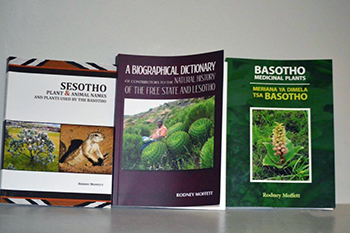Latest News Archive
Please select Category, Year, and then Month to display items
01 January 2020
|
Story Eugene Seegers
|
Photo Kaleidoscope Studios | Sonia Small
 Dr Maria Madiope took over the reins of the UFS South Campus at the beginning of January 2020.
Dr Maria Madiope took over the reins of the UFS South Campus at the beginning of January 2020.
The Council of the University of the Free State (UFS) approved the appointment of Dr Maria ‘Marinkie’ Madiope as Principal of the South Campus for Open Distance Learning (ODL) during a meeting held on 20 September 2019. Dr Madiope took over the reins of the UFS South Campus at the beginning of January 2020.
Educator at heart
Educating and empowering others are key aspects of Dr Madiope's life. She has served as the Director for University Teaching and Learning at Unisa since 2015 and takes her role incredibly seriously, achieving a transformative curriculum at the colleges under her care since her appointment.
Dr Madiope holds a PhD in Education from Unisa, with a specialisation in Didactics; her next two degrees where completed at the then RAU, which is today known as the University of Johannesburg: a BEd in 1999, followed by an MEd in 2001, both specialising in Computer-based Instruction. She previously obtained her BA Ed in 1985 and a BEd in 1988 from the University of the North. Her initial training as a teacher was from the Hebron College of Education from 1980-81.
Dr Madiope is also the editor of the only journal in ODL, Progressio, since 2016. Her expertise in E-learning is another of her strong points. Together with her team, Dr Madiope designed and developed the first online course in Curriculum Transformation, which is being piloted at Unisa. Her work has been rewarded with awards such as the Unisa Gender Activism: Advocacy and Promotion of Women’s Rights 2013, Unisa Woman of the Year 2013, and Unisa Best Performer 2013.
Dr Madiope brings with her a wealth of experience to UFS and her vision is to increase access to a wider base of learners with potentially having more African learners enrolled. The first point of call would be to have more learners coming from Lesotho and then the rest of the SADEC region, having the UFS become a leading distance-learning university. One of the key projects that Dr Madiope wishes to tackle is early childhood development. “I believe in educating educators to ensure that they are best equipped to provide the latest and relevant Early childhood and development practices that are on par with the rest of the world,” she says.
Community leader
In addition to being an experienced educator and administrator, Dr Madiope is instrumental in community projects that lie close to her heart. Whether it is large-scale advocacy for women’s rights or her personal involvement in the supply of sanitary towels for schoolgirls as part of a programme to empower the girl child through exposing them to options, it is humbling to watch her compassion in action.
She further intends to strengthen the relationship of the university with TVET Colleges and community colleges by providing mutually beneficial programmes that will up-skill those colleagues by giving them an opportunity to work with experienced UFS staff members. She says, “Reaching out to colleagues in TVET and Community colleges will offer them the opportunity to advance their lecturing and learning programmes, which will only lead to benefiting their learners and South Africa as a whole.”
Prof Moffett’s third book provides comprehensive guide to Basotho medicinal plants
2017-07-26

Prof Rodney Moffett’s three books documenting Basotho
plants, animals, and the history of the Free State and Lesotho.
Photo: Thabo Kessah
Prof Rodney Moffett has recently published his third book, Basotho Medicinal Plants – Meriana ya Dimela Tsa Basotho. This latest offering deals only with medicinal uses and is based on the data from his first book, Sesotho Plant and Animal Names and Plants Used by the Basotho.
“The latest book came about after a Sesotho language advisor in the Free State Department of Education suggested that there was a need for the medicinal uses of plants by the Basotho to be documented in the vernacular. In a situation where there is an almost total lack of scientific literature in the vernacular, the greatest value of this book therefore, is that it provides a comprehensive guide to the medicinal uses of plants in Sesotho,” said Prof Moffett, Honorary Research Associate in the Department of Plant Sciences on the Qwaqwa Campus.
Book lists names of plants in Sesotho
“It comprises two parts. Part one lists the medicinal categories and plants used, and part two lists the medicinal uses arranged according to the Sesotho names of the plants. It is easy to read, as the information is presented alphabetically with the Sesotho name first, followed by the scientific name and usage thereof. Because a plant often has more than one Sesotho name, the scientific name is included to identify it.”
Prof Chris Nhlapo, Deputy Vice-Chancellor of the Cape Peninsula University of Technology, and Prof Ntsamaeeng Moteetee from the University of Johannesburg are impressed with the book, respectively saying that it assists in documenting the deep indigenous knowledge of the “proud tradition of the Basotho Nation” and it is “an important contribution to the documentation of medicinal plant uses”.
The title of Prof Moffet’s second book was A Biographical Dictionary of Contributors to the Natural History of the Free State and Lesotho.
Prof Moffett was honoured with a Lifetime Researcher Award during the Academic and Research Awards on the Qwaqwa Campus in November.